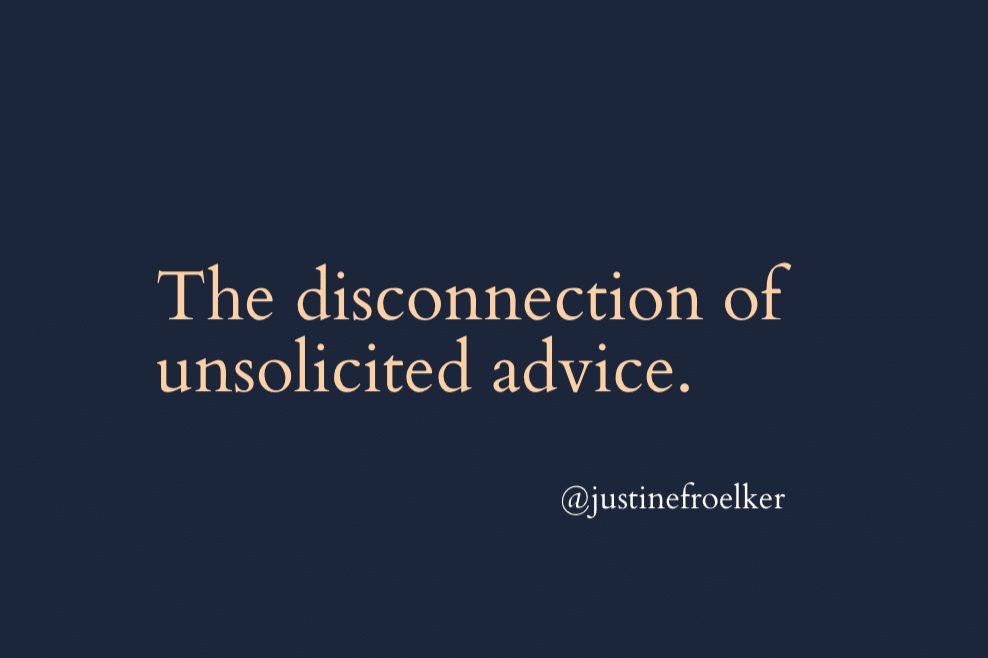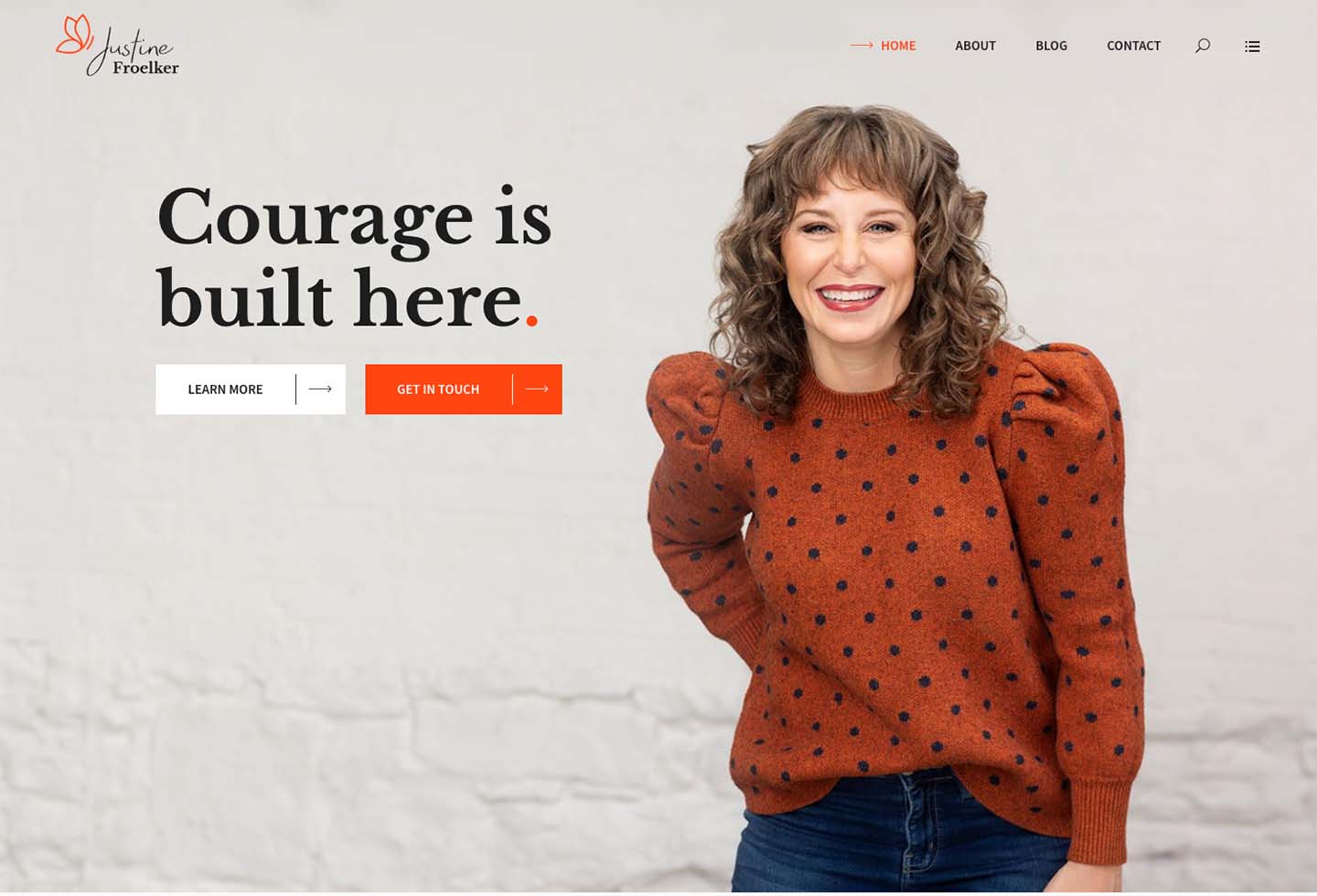Your cart is currently empty!
The disconnection of unsolicited advice.

I’ve often been the person who shares their story of struggle, whether infertility or health battles, only to be met with an onslaught of unsolicited advice that I never asked for.
For me, and from what I hear from many of you, that helpful advice never really feels that helpful.
Stay with me…
Before you send a message or post a comment with your helpful suggestion…
Pause.
Did they ask you for help and suggestions?
No?
Then, sorry, not sorry, do not send or post your advice.
Unsolicited help often does not feel helpful. Often, it only fosters disconnection and frustration.
What would it be like to not send that unsolicited message of help?
What would it be like to get curious about why you are feeling the need to jump in and fix or rescue or help someone who didn’t ask you to fix or rescue or help them?
For me, no doubt I know that when people offer unsolicited help, it is coming from a well-meaning place. And trust me, as a woman who has struggled with infertility and now health issues, I have gotten many messages of what to try or buy, who to call or see, and how someone just knows exactly what will fix me.
As someone who also has a ton of her own knowledge, lots of resources, a huge team, and even a couple of degrees in helping, I myself often have to stop myself from sending that helpful message even when help wasn’t asked for.
Because to meet people with unsolicited advice, well-meaning or not, is an empathic miss. It is not sitting beside others, taking their hand with love, and saying I’m here, and making sure they feel seen by us.
We don’t need to be fixed.
We need to feel seen and loved.
When people invite us into their stories, especially their stories of struggle, and they don’t ask for help, what would it be like to simply accept their invitation and meet it with empathy?
Something like,
“This sounds so hard. I am so glad you are telling your story. I don’t know what to say. I am just glad you are sharing.”
I suppose there may be some caveats to never sending unsolicited advice, like have you had personal experience with what they are going through? I don’t mean your third cousin or a friend of a friend; I mean personal experience with what they are going through.
Then maybe sending them a message of empathy first followed by an ask, something like: “It is so brutal, I know this battle all too well myself. If you ever want some resources that have worked for me, just let me know, and I can send you some info.”
Accept the invitation into their story, choose the skills of empathy, and give them the opportunity to accept your offer for helpful resources…if they choose to.
Another caveat may be that you are a professional trained to help with that particular struggle, and you would like to offer your services. First, a reminder, many people, when sharing their stories, most likely have googled already, have a team already, and are on a regimen. However, help is help. So we may want to say something like: “This struggle is so hard. I am a _________ with experience in this. If you aren’t already working with a team, I would be honored to walk alongside you through this journey when you are ready.”
No personal experience and not a professional offering your services, then full stop, do not send your suggestion. Time to rumble with yourself.
Actually, what would it be like to simply go back to the beginning and not send advice because they didn’t ask for? To simply choose empathy.
Because it isn’t our job to save anyone.
Because more than being fixed or saved, people simply need to feel seen and loved.



